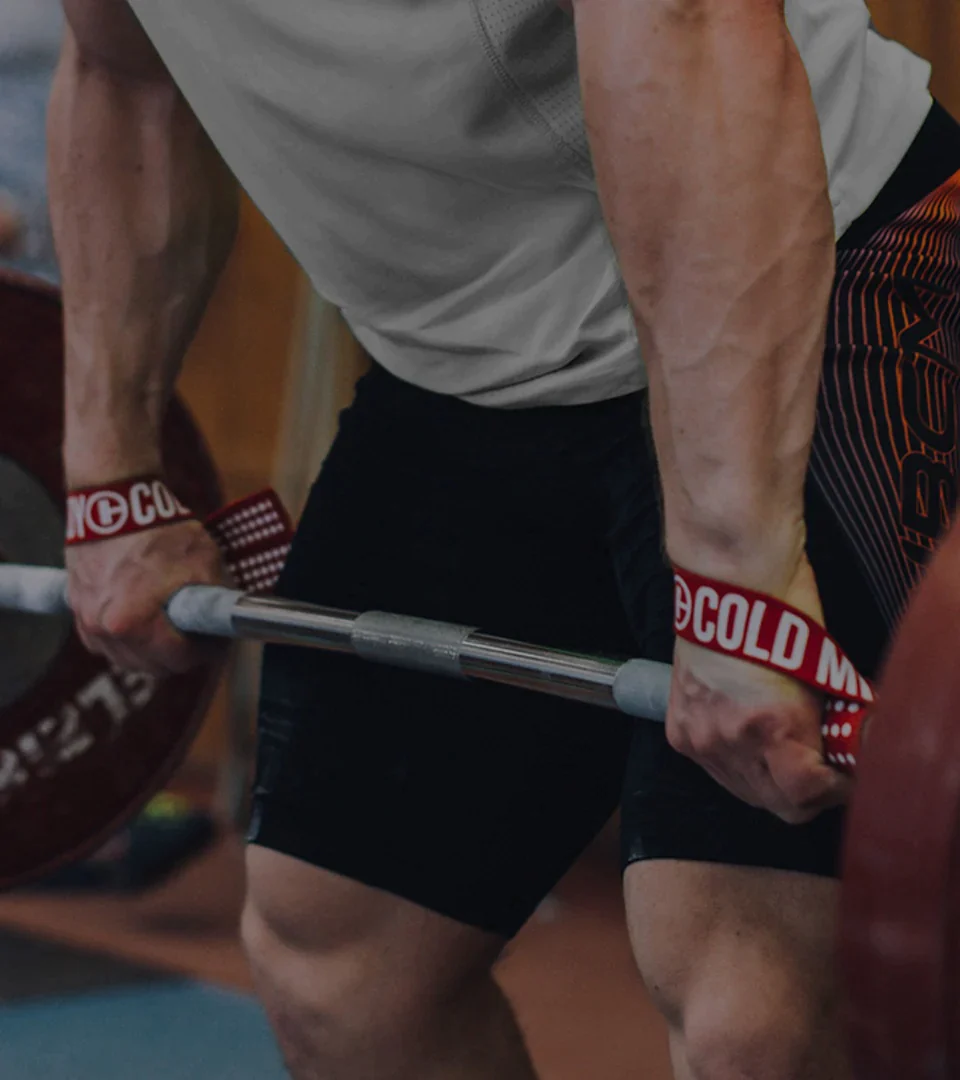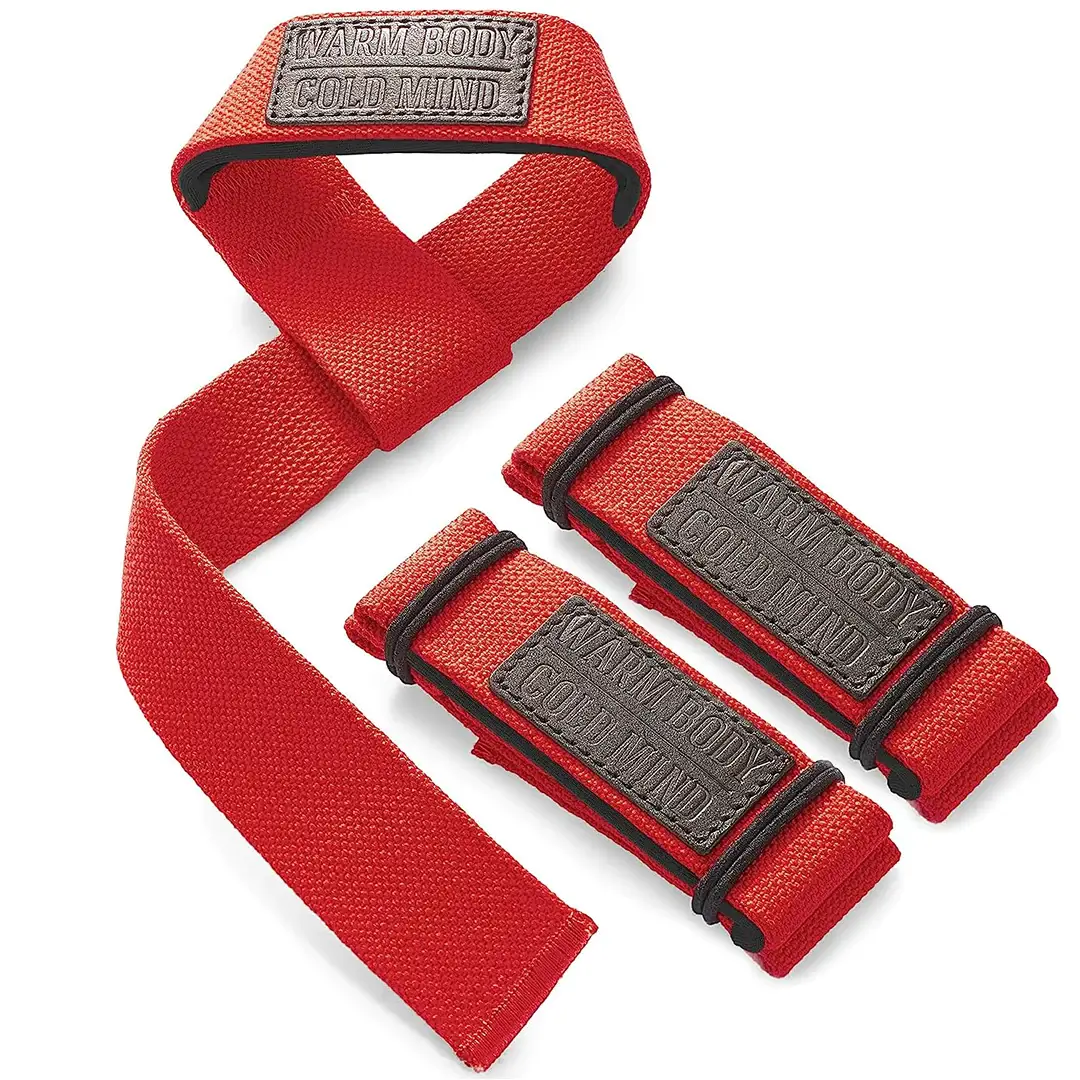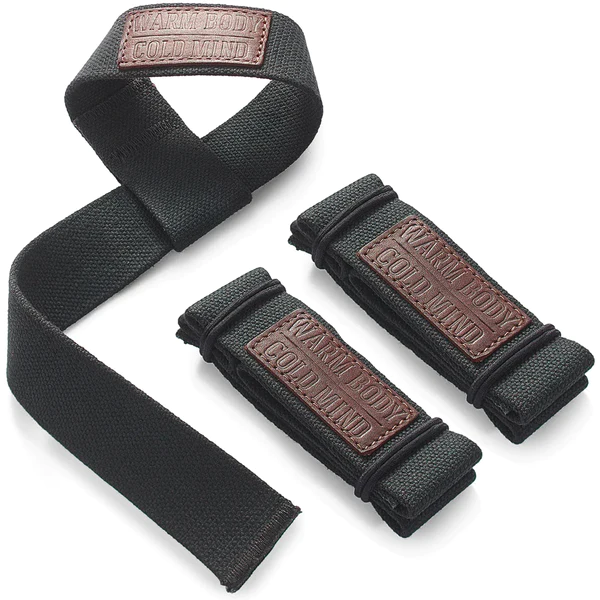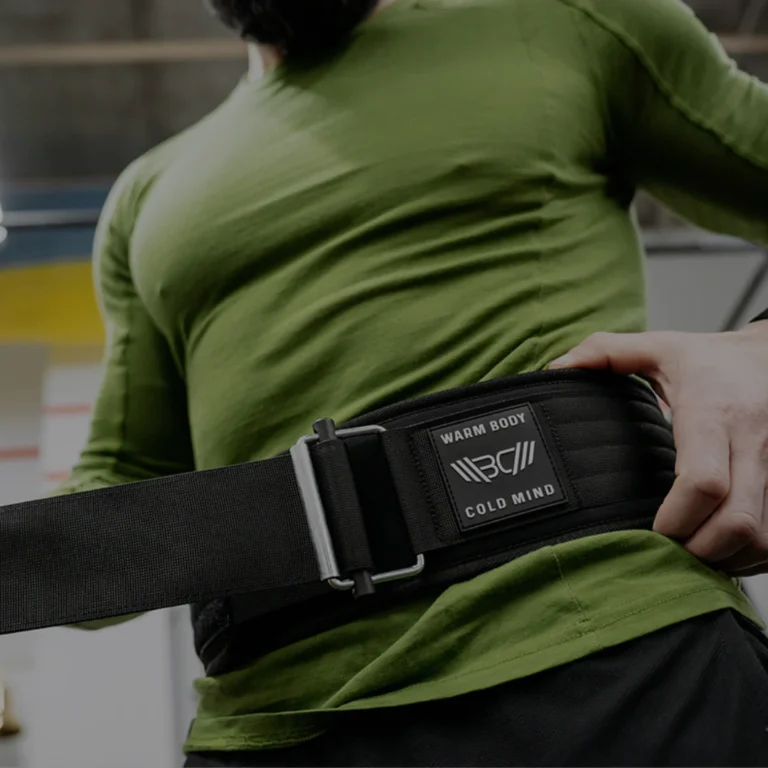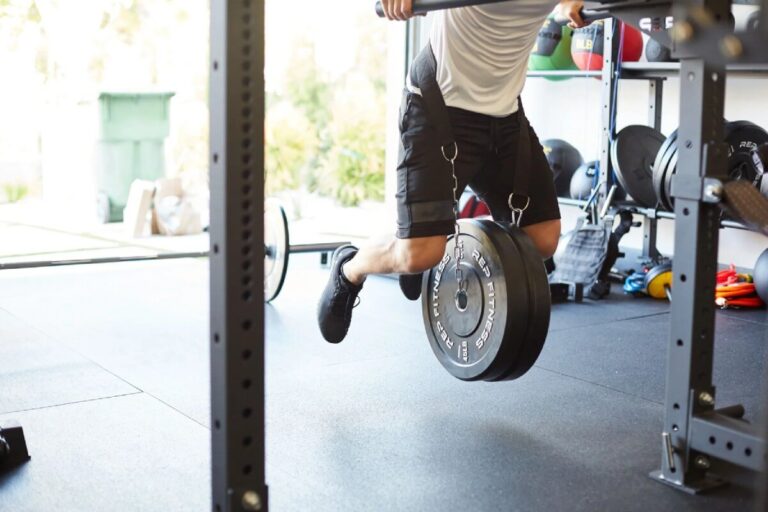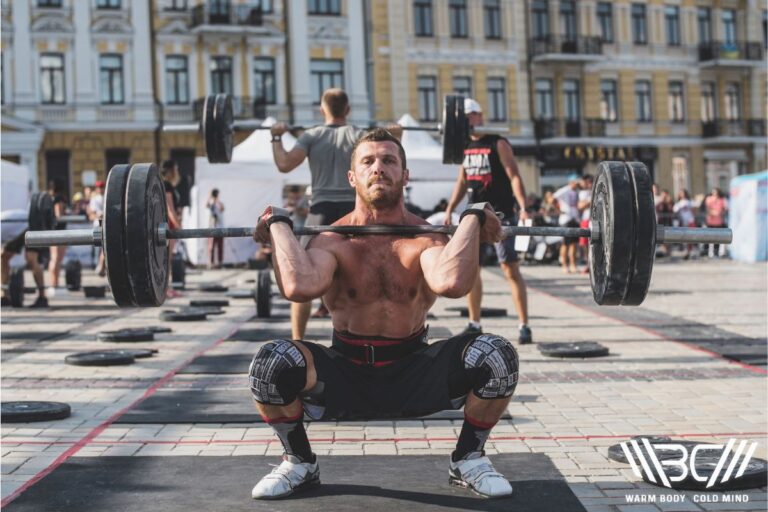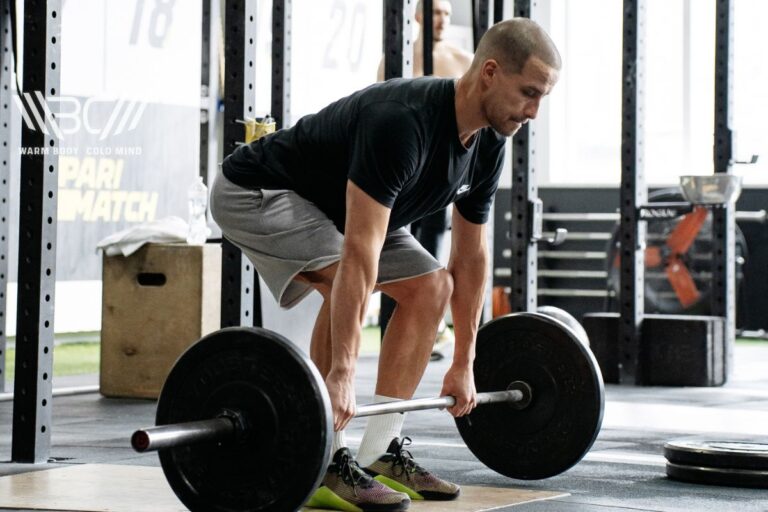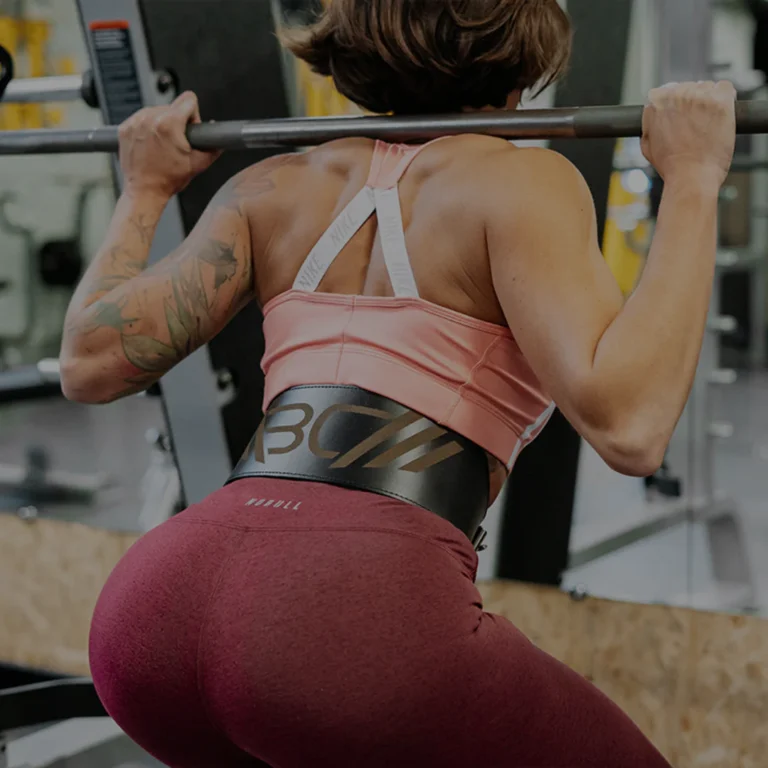Leather vs Nylon vs Cotton Lifting Straps: Understanding the Best Choice for Your Lifts
Even if you have strong lats and glutes, it is common knowledge among lifters that grip strength can limit your gains and performance. Good news is that there is science that supports the benefits of using weightlifting straps when it comes to improving grip recovery and maintenance of grip strength. And when used along with a weightlifting belt, a study proved that it can reduce knee flexion angle resulting in better form.
However, one of the biggest dilemmas that people have is choosing between leather vs. nylon vs. cotton lifting straps.
So which one should you choose? In this article, we’ll help you decide as we discuss the pros and cons of each.
Choosing from leather vs. nylon vs. cotton lifting straps, you should clearly understand your needs. If you’re into lifting heavy, then leather weightlifting straps are your best choice. Leather doesn’t stretch compared to nylon and cotton. Among the three, cotton comes as the weakest material for lifting heavy.
Cotton Lifting Straps
If you’re the type of person who has sensitive skin and deals with chafing regularly, then perhaps, you should consider cotton lifting straps as your first choice. With its softer and smoother surface compared to nylon and leather, it’s the go-to option for those that don’t want to deal with skin irritation.
Aside from those that don’t want to use lifting straps that are rough to the skin, a cotton weightlifting strap is also handy for those individuals who tend to sweat profusely. Cotton is hydrophilic. This means that it absorbs moisture. It means that you can avoid sweat-induced itch because the sweat doesn’t stay on the surface.
And of course, after you’re done with your workout, you can easily throw it in your washing machine and have it washed. Here, the cotton weightlifting straps don’t have to stink in your gym bag because you get to clean it after every session.

Cotton Lasso Lifting Straps Pro
Enhance your lifting experience with Warm Body Cold Mind lasso lifting straps designed for durability and comfort.
Unfortunately, it comes with a few drawbacks if you’re going to invest in a cotton lifting strap. For one, It is time-consuming to clean the weightlifting straps every time you use them. Plus, cleaning the cotton using your washing machine adds wear and tear to the fabric.
Now, is it durable? If you’re buying a cotton weightlifting strap, don’t expect it to last for a long time just like a leather or nylon weightlifting strap. And for those who love lifting heavy, you can’t over-rely on it since it typically offers less grip strength compared to leather and nylon.
If you’re investing in cotton lifting straps opt to go for light to moderately heavy weights. This way, it stays within the cotton weightlifting strap’s limit.
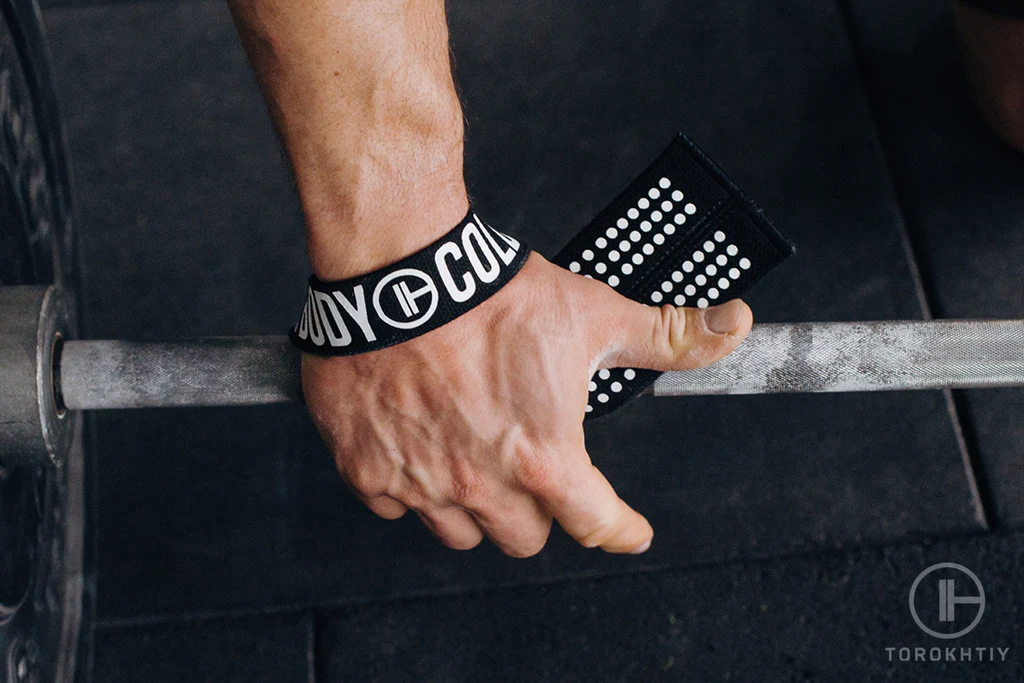
Warm Body Cold Mind Weightlifting Strap
Warm Body Cold Mind weightlifting strap is available in different colors to match different personalities. You can find it in red, yellow, white, pink, and black colors.
This cotton weightlifting strap has been tested and has a rating of 770 pounds. This means that it can help support your grips especially when you’re after lifting heavy on that day.
Measuring 22″ in length and 1.6″ wide, it is perfect for both big and medium-built athletes. It also comes with dual stitching that prevents it from tearing when you need it the most. As for the grips, it comes with neoprene and natural leather that makes it easy to lift.
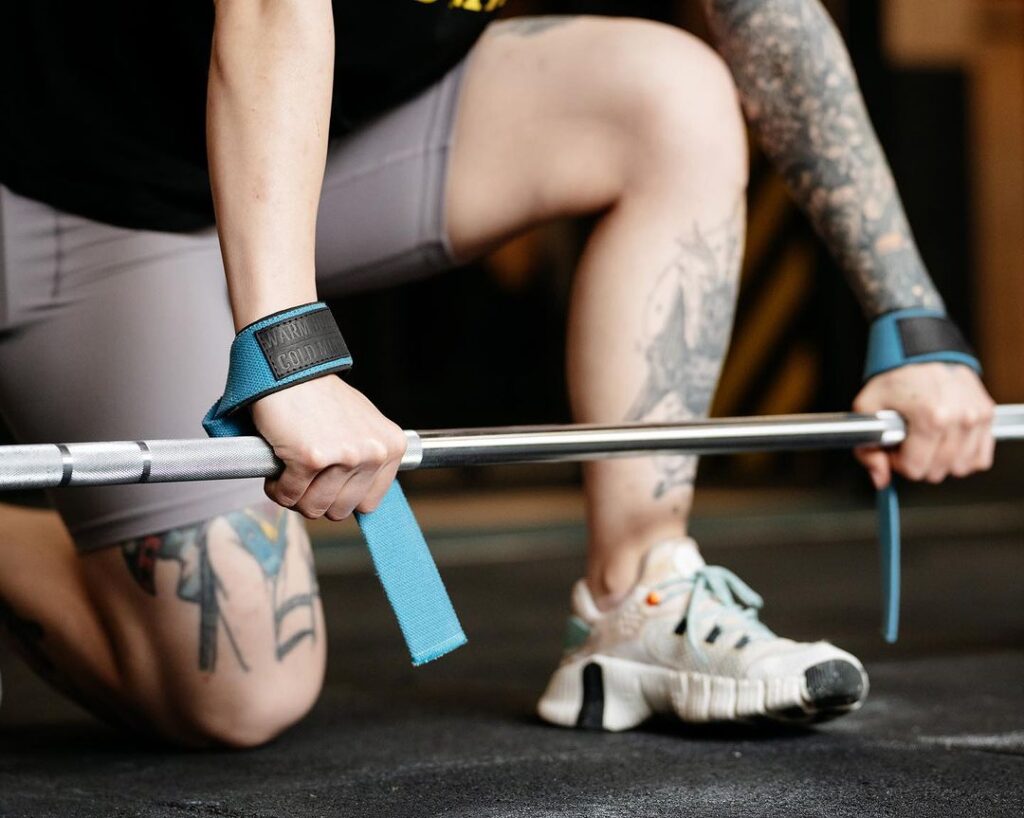
If you’re not too bothered by the lack of padding, then this might be a perfect choice for you. However, if you have sensitive skin, then maybe it’s something you want to reconsider. Or perhaps, you might want to cover your skin with some athletic tape before using this strip.
Nylon Lifting Straps
Nylon lifting straps are quite popular among serious bodybuilders and weightlifters, and even among those who are just starting their powerlifting journey. When compared to cotton weightlifting straps, these straps don’t stretch as much.
It also comes at a more practical price point than leather. On the other hand, the average nylon lifting strap is more expensive than your cotton weight lifting strap since nylon material can outlive your cotton weightlifting strap.
It is typically thicker than your average cotton strap, plus the fact that it doesn’t stretch, making it durable for heavy lifts, and ideal for those who don’t want to keep buying a new one after their strap has worn out. Don’t be surprised if some nylon straps last for years without the need to be replaced.
It’s typically an in-between for those who don’t want to invest in animal-based products but prefer having a non-stretchy weightlifting strap.
However, one of the downsides of using nylon weightlifting straps is that it doesn’t absorb moisture and sweat that well. You’d typically end up having a weightlifting strap that is covered in sweat after a tough workout. This also means those with sensitive skin might observe redness on their skin after wearing a weightlifting strap.
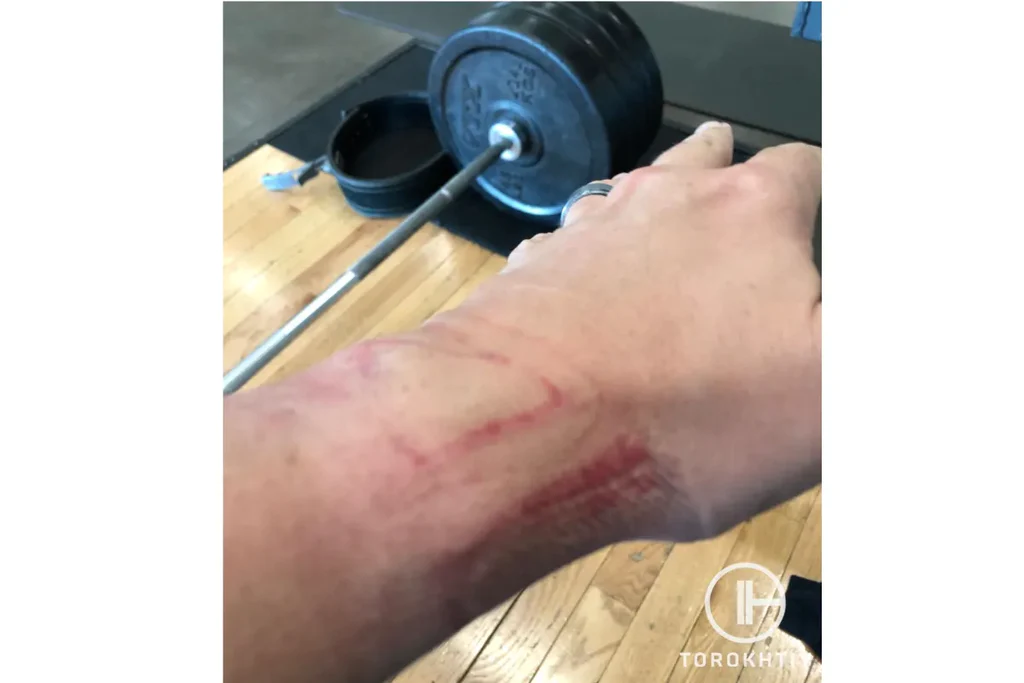
A basic after-care for this type of weightlifting strap is that you will need to air out your nylon weightlifting straps after using it. If not, you could also just wipe it with a dry cloth. But of course, sweat and dirt can still accumulate on its surface which can trigger allergic reactions.
And unlike cotton, you couldn’t just clean it using your washing machine. Instead, you can only use spot-cleaning techniques using detergent and a damp cloth. And lastly, never use chlorine bleach.
Subscribe!
The latest reviews of must-have home gym training equipment, apparel, and supplements that will enhance your performance and bring you new results.
Leather Lifting Straps
Leather lifting straps are often associated with serious lifters. Known for their durability and stylish looks, these are common reasons why leather is quite popular among pros. Performance-wise, there is no study to indicate that leather is the best material that could outperform nylon.
However, compared with nylon, leather weightlifting straps are known for their smoother surface avoiding chafing. And unlike cotton, leather doesn’t stretch when there’s tension. This makes it a reliable choice if you’re lifting heavy weights.
But of course, there are a few things that you will have to consider if you’re serious about choosing leather over other types of weightlifting straps. For instance, just like your leather shoes, you will have to “break in” the weightlifting straps before you could use it without any difficulty.
In addition to this, if you already find nylon being sweat-resistant, leather straps are even more moisture resistant and sweat resistant between the two. This means that you should also practice proper leather care and storage if you don’t wish the leather material to crack. And lastly, those who don’t like animal products tend to stir away from leather.
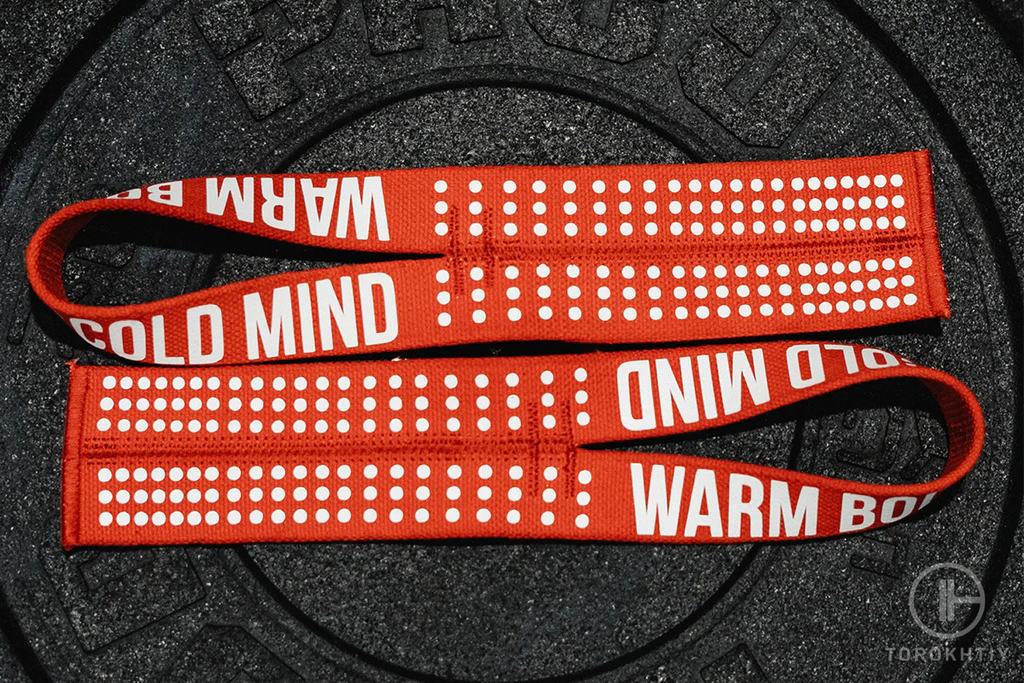
FAQ
Which Type of Lifting Straps Are Best?
Performance-wise, users can go with either nylon or leather versions of the weight lifting straps. These options don’t stretch allowing users to go heavy with it.
What Makes a Good Lifting Strap?
A good lifting strap should be comfortable to use, and should support your grips especially when you’re lifting heavy.
Are Padded or Non Padded Lifting Straps Better?
Padded adds comfort to lifting straps. For others, non-padded lifting straps tend to hurt their skin especially when lifting heavy weights off the ground.
Final Thoughts
Ultimately, it tells us that users achieve proper movement in performing deadlifts with weightlifting belts and straps. However, manufacturers have come up with different types of weightlifting straps.
Here, you have nylon, cotton, or leather as your options. Given these choices, be sure to evaluate the pros and cons. This way, you get the best experience when performing your workout.
So which one do you prefer when it comes to your weightlifting straps? Let us know in the comment section below!
References:
- Ivan Jukic, Amador García-Ramos, Jiří Baláš, Jan Malecek, Dan Omcirk, James J Tufano, “Ergogenic effects of lifting straps on movement velocity, grip strength, perceived exertion and grip security during the deadlift exercise”; National Library of Medicine, https://pubmed.ncbi.nlm.nih.gov/33306977/ (accessed 16.06.2023).
- Shirley S.M. Fong PT/PhD, Louisa M.Y. Chung RNutr/DHSc, Yang Gao MD/PhD, Jeff Chak Wai Lee BHE, Tak Ching Chang BHE, Ada W.W. Ma/PhD, “The influence of weightlifting belts and wrist straps on deadlift kinematics, time to complete a deadlift and rating of perceived exertion in male recreational weightlifters”; National Library of Medicine, https://www.ncbi.nlm.nih.gov /pmc/articles/PMC9282110/ (accessed 16.06.2023).
- Drouillard KG, Tomkins A, Lackie S, Laengert S, Baker A, Clase CM, et al. (2022) “Fitted filtration efficiency and breathability of 2-ply cotton masks: Identification of cotton consumer categories acceptable for home-made cloth mask construction,” PLoS ONE 17(3): e0264090. https://www.ncbi.nlm.nih.gov/pmc/articles/PMC8939836/ (accessed 16.06.2023).
- Hiroyuki Murota, Kosuke Yamaga, Emi Ono, Naoya Murayama, Hiroo Yokozeki, Ichiro Katayama, “Why does sweat lead to the development of itch in atopic dermatitis?,” 01 June 2019, https://onlinelibrary.wiley.com/doi/full/10.1111/exd.13981 (accessed 16.06.2023).
- M. H. GOLDMAN, C. C. HUBBARD, “CLEANING OF FUR AND LEATHER GARMENTS,” TECHNOLOGIC PAPERS OF THE BUREAU OF STANDARDS, 11.05.1927 No. 360 [Part of Vol.22] https://nvlpubs.nist.gov/nistpubs/nbstechnologic/nbstechnologicpaperT360.pdf (accessed 16.06.2023).
Author: Ihor Shymechko
Coach, PRO Olympic Weightlifter
Ihor Shymechko is a renowned Ukrainian weightlifter. He has represented his country in several Olympic Games, notably in 2008, 2012, and 2016. His impressive career includes winning the European championship in 2009 and earning a silver medal in 2011 in the +105 kg division. Shymechko also earned a Ph.D. from Lviv State University of Physical Culture.

